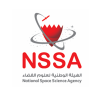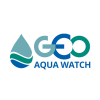Conservación de humedales: cómo la observación por satélite apoya la gestión sostenible de los humedales
Translated by: Isabel Zetina
El 2 de febrero de 2020 celebramos el Día Mundial de los Humedales para concienciar al mundo sobre el papel vital de los humedales para las personas y nuestro planeta. La edición de este año destaca la conexión entre el agua, los humedales y la vida.
























